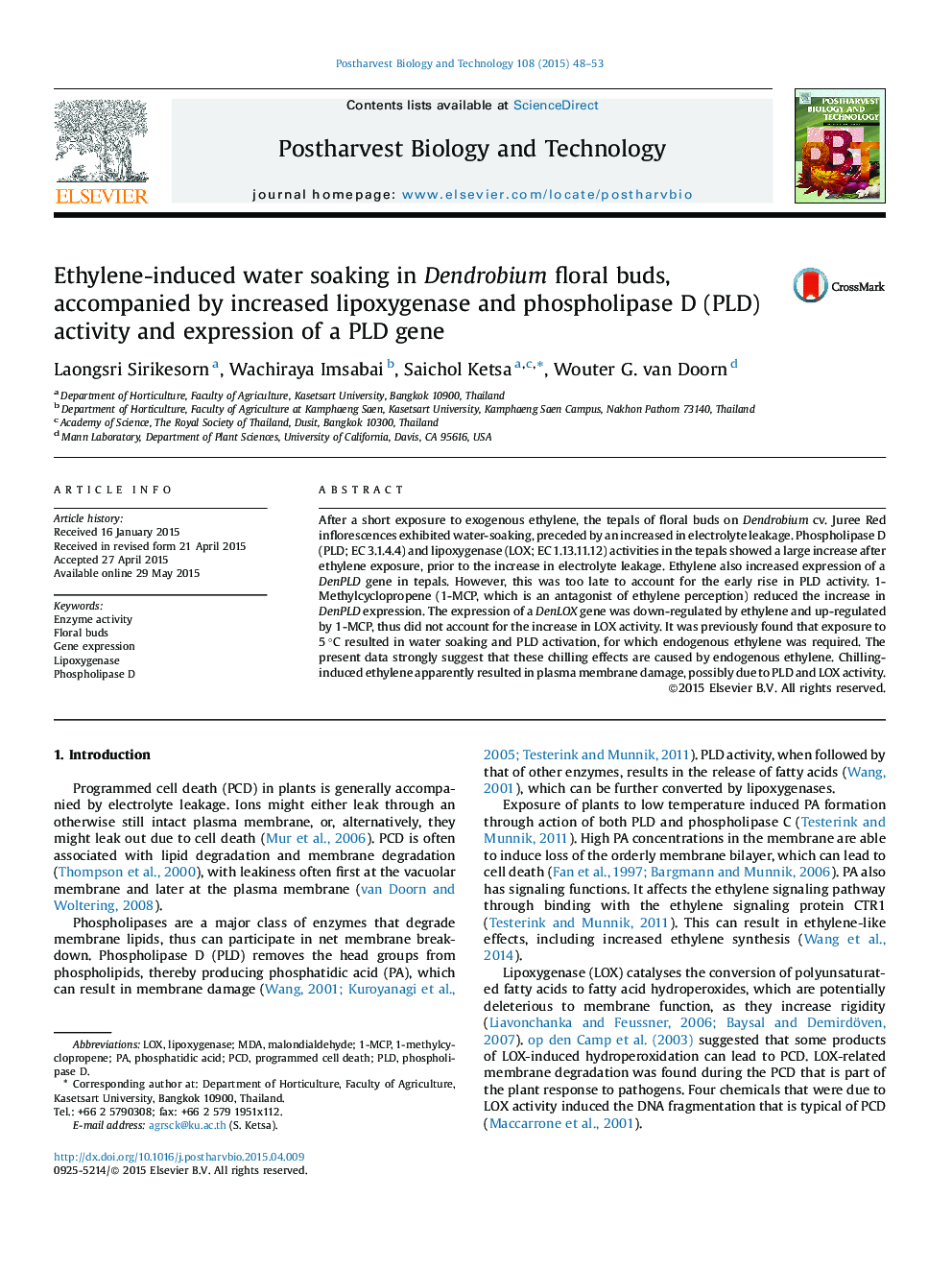| Article ID | Journal | Published Year | Pages | File Type |
|---|---|---|---|---|
| 4518012 | Postharvest Biology and Technology | 2015 | 6 Pages |
•After exposure to ethylene, floral buds of Dendrobium showed water-soaking.•This was preceded by increased electrolyte leakage.•It was also preceded by increased activities of lipoxygenase and phospholipase D (PLD).•Ethylene also induced high expression of a DenPLD gene.
After a short exposure to exogenous ethylene, the tepals of floral buds on Dendrobium cv. Juree Red inflorescences exhibited water-soaking, preceded by an increased in electrolyte leakage. Phospholipase D (PLD; EC 3.1.4.4) and lipoxygenase (LOX; EC 1.13.11.12) activities in the tepals showed a large increase after ethylene exposure, prior to the increase in electrolyte leakage. Ethylene also increased expression of a DenPLD gene in tepals. However, this was too late to account for the early rise in PLD activity. 1-Methylcyclopropene (1-MCP, which is an antagonist of ethylene perception) reduced the increase in DenPLD expression. The expression of a DenLOX gene was down-regulated by ethylene and up-regulated by 1-MCP, thus did not account for the increase in LOX activity. It was previously found that exposure to 5 °C resulted in water soaking and PLD activation, for which endogenous ethylene was required. The present data strongly suggest that these chilling effects are caused by endogenous ethylene. Chilling-induced ethylene apparently resulted in plasma membrane damage, possibly due to PLD and LOX activity.
